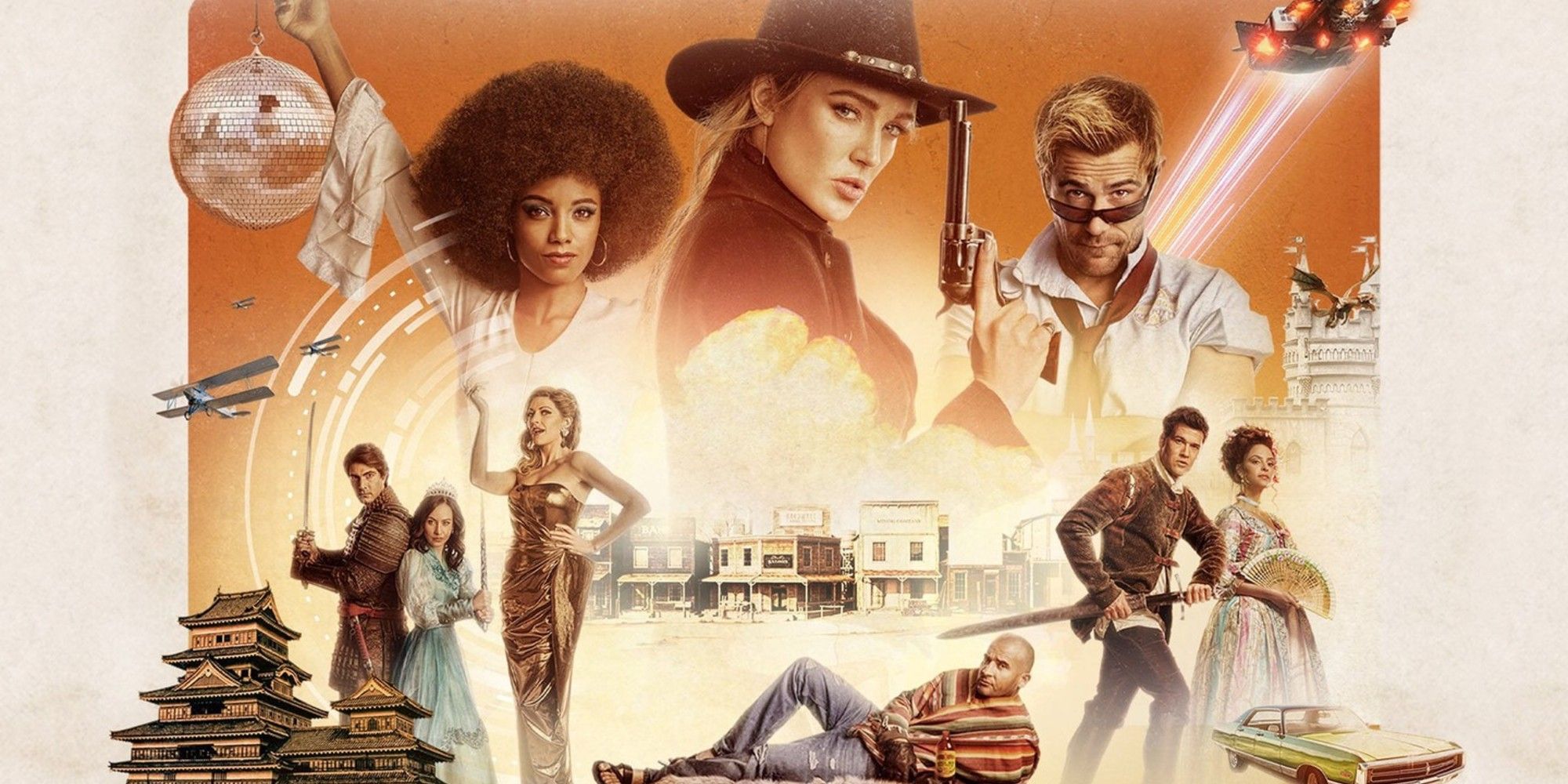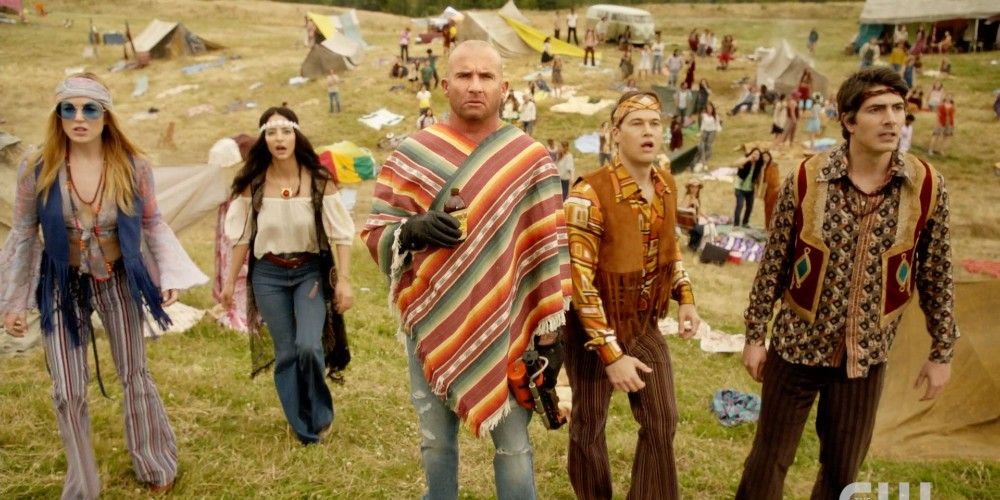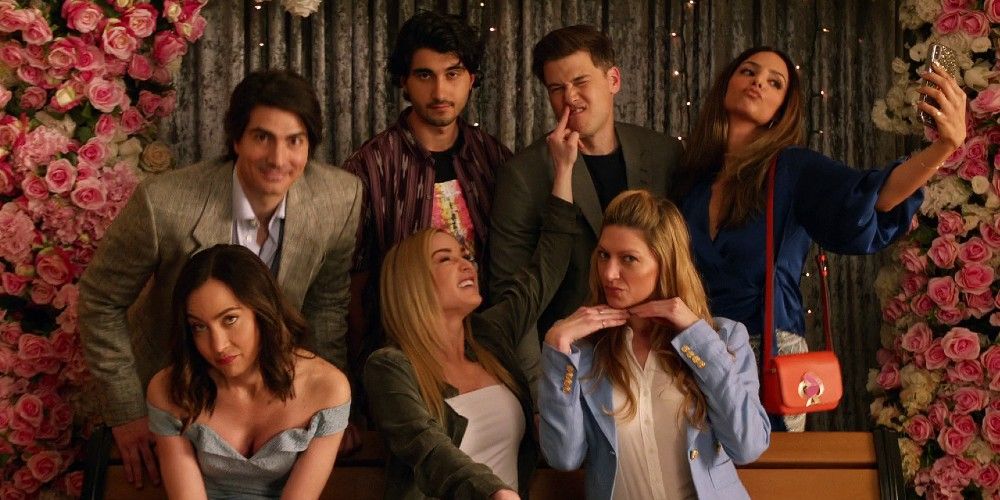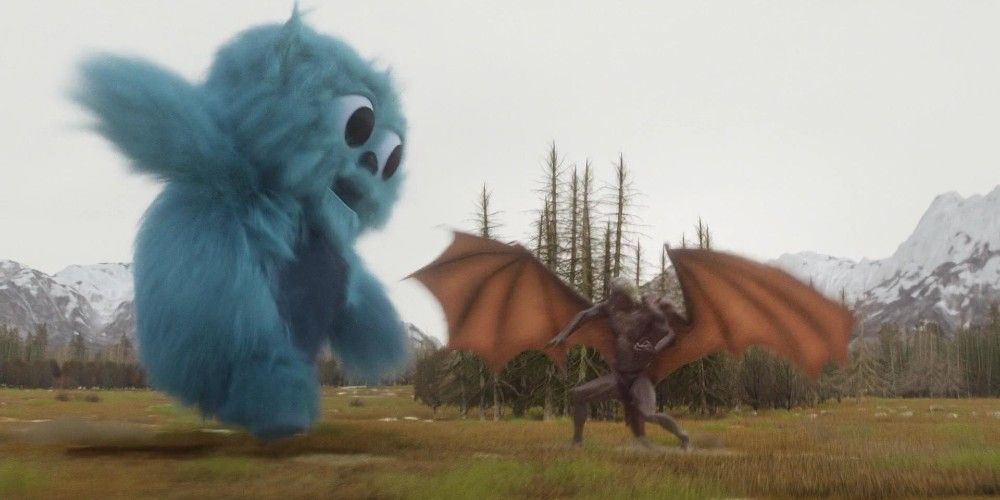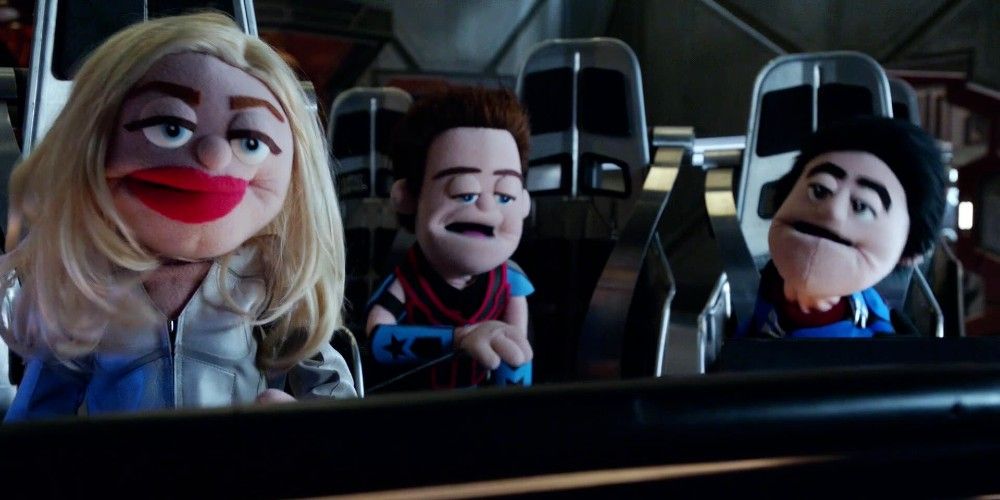DC’s Legends of Tomorrow, which returns to The CW on 2nd May, had a rough first season. Composed of C-list DC Comics superheroes and supporting characters from the Arrowverse, the series struggled to find its footing with boring star-crossed romances and a turgid “epic” scope. But even amongst this first season, there was rough potential, and Legends of Tomorrow has slowly refined and reinvented itself into a fantastic freewheeling “superhero” show, whose sixth season promises to be just as strange.
Legends of Tomorrow doesn’t have the same name recognition as Arrow, The Flash, or Supergirl, and its truncated 15-episode seasons (as opposed to the standard 22) means it remains a hidden gem. At first, Legends of Tomorrow tried to replicate its fellow CW shows’ formula of semi-serious stakes and the tragic, brooding backstory of Rip Hunter (Arthur Darvill), whose family was killed by the immortal Vandal Savage (Casper Crumb). But this only meant Legends of Tomorrow was rote and disposable. Instead, Legends of Tomorrow has shaken itself up so it barely feels in the same universe of the Arrowverse, with Season 3 – the best place for newcomers to jump on – morphing the series into the best version of itself.
Humor
Legends of Tomorrow is primarily a comedy show now. Most Arrowverse shows contain jokes, one-liners, and silly moments, but they’re mostly amendments to dramatic shows. Even The Flash and Supergirl – initially touted as being light-hearted and wholesome alternatives to Arrow’s gritty intensity – are now burdened with serious topics and heavy stakes. Of course, there’s nothing wrong with superhero shows like Black Lightning or Falcon and the Winter Soldier addressing real-world issues. But the time-traveling Legends of Tomorrow has embraced its wacky premise so that even critical plot points involve magically-enchanted nipples or the Legends being trapped on parodies of Star Trek and Friends.
Legends of Tomorrow often takes these big, goofy swings at silly time-travel hijinks, like having Ernest Hemingway fight a Minotaur or Julius Caesar taking over a toga party. The show has gained a sense of glee, going down to the camera-work feeling looser and more hand-held and episode names shifting from generic titles like “River of Time” and “Compromised” to cheeky references like “Slay Anything,” “Necromancing the Stone” and “Romeo v. Juliet: Dawn of Justness.” Everybody involved in the show seems to be having fun, including Legends of Tomorrow featuring Arrow villain Damian Darhk (Neil McDonough) having his “resurrection” scored to “Return of the Mack” – music and sing-a-longs often pop up in Legends of Tomorrow.
Most importantly, Legends of Tomorrow is genuinely and consistently funny. Its brazen devil-may-care attitude brings in the big entertaining spectacle, but it’s sold by the committed cast of characters. They are well aware of how ridiculous the show has gotten, and this self-aware, off-the-cuff commentary makes it all the more enjoyable. During “Here I Go Again,” when teammate Zari (Tala Ashe) is stuck inside a time-loop ala Groundhog Day, Nate Heywood (Nick Zano) mutters “it was only a matter of time before we did one of these.” And when leader Sara Lance (Caity Lotz) gives a standard mission briefing, the other Legends encourage her to reiterate it with “more pizzazz.” Legends of Tomorrow gets as much comedy from the Legends’ all lining up for the Waverider’s single bathroom together as being chased by a murderous puppet in “Hell No, Dolly!”
Heart
Yet it’s precisely because Legends of Tomorrow embraces its comedic core that it becomes more dramatically effective. By having the Legends be silly and funny – getting drunk together or bickering at breakfast – they become far more endearing. Straightforward dramatic shows sometimes forget to make their characters likable, so audiences are meant to feel sympathetic for their trying situations without actually being familiar or engaged with them. But by Legends of Tomorrow having its crew be so likable, viewers actively root for them to survive.
Nate and Ray Palmer (Brandon Routh) becoming “science bros” is funny in itself, but it also creates a lovely openly affectionate male friendship, effectively enhancing Ray’s departure from the series with his wife Nora Darkh (Courtney Ford) – itself a sweet romance bolstered by Ray’s puppy-dog eyed optimism and that the two are married in real life.
The show also non-didactically foregrounds its LGBTQ+ and queer romances, with the bisexual Sara Lance becoming co-captain of the Waverider with committed girlfriend Ava Sharpe (Jes Macallan). Legends of Tomorrow is raunchier than average Arrowverse shows, with John Constantine (Matt Ryan), who joins the show in Season 3, also be bisexual – something ignored by his own NBC show – hooking up with Sara but having Season 4 revolve around his love for Desmond (Christian Keyes). Earlier Legends of Tomorrow episodes like “Night of the Hawk” highlighted the discrimination Sara and the non-white Legends would face in earlier time periods, but although well-intentioned, current Legends simply embraces its sexual and racial diversity without making a big fuss.
Legends of Tomorrow gallivanting to new time periods each episode ironically brings the crew closer together. There is little outside world. They live together outside the timestream and, as mentioned, there’s only one bathroom. So, the Legends become a “new family” to support and rally each other on. Unlike on Arrow or even Supergirl, their adventures are not a “job” or a “mission,” but something the Legends choose to do together, and enjoy. The Legends’ title is ironic, Rip Hunter originally picked them because they were “forgotten from history.” So the group is not typical “heroes” but oddball losers, and it's through this quirky rag-team mentality that the heart and humor of Legends of Tomorrow shine all the brighter.
Freedom
Time-travel shows can get hung up on the rules and paradoxes of the genre. And while Legends of Tomorrow toyed with this early on, now it plays fast-and-loose with the structures, a recurring joke being how irresponsible the Legends are with history, and that they “screw things up for the better.” The show uses such freedom to reinvent itself, like discarding Rip Hunter’s storyline and embracing a supernatural element. Or when Amaya Jiwe left the group in Season 3, her actress Maisie Richardson-Seller ingeniously returned as the shapeshifter “Charlie”. This is also true of Zari, whose timeline was altered by the Legends in Season 4, making her retroactively replaced on the team by her brother Behrad (Shayan Sobhian) while Zari became a completely different person.
Such unlimited freedom has opened Legends of Tomorrow to its most outlandish scenarios, such as Nora Darhk becoming “cursed” as a Fairy Godmother (tiara and puffy blue dress and everything) or the Legends fighting a terrifying, LSD-emitting Unicorn at the Woodstock Festival. Many cite Gorilla Grodd traveling to hunt down a young Barack Obama in “Guest Starring John Noble,” but the very same episode has the Legends going to the set of Lord of the Rings, recruiting real-life actor John Noble to make a fake recording of the overarching demonic villain Mallus, whom Noble voices in the show. Later, the Legends defeat Mallus through combining their souls into a Kaiju-size Furby-esque creature Beebo.
So, Legends of Tomorrow has only embraced its silliness and imagination as its developed, including mixing up the very format of some episodes. Alongside the Groundhog Day time-loops, the series has featured an in-universe mockumentary of the Legends (“Meet the Legends”) and Bollywood musicals (“Séance and Sensibility”), and when Constantine goes through the Legend rite-of-passage by breaking the timeline in “Legends of To-Meow-Meow,” Zari becomes a cat while the Legends are reinvented as parodies of The A-Team, Charlie’s Angels and The Muppets.
Once a collection of supporting characters, Legends of Tomorrow has become something uniquely special. Its unabashed embrace of comic book absurdity is combined with true sincerity towards its characters, creating a comedic and unpredictable series that never feels vindictive. Even when those like Dominic Purcell’s Mick Rory leave the main cast, the series’ infectious glee shows little sign of slowing down. Legends of Tomorrow unshackled itself from the formula and burdens of its past, and dove into the weird and wonderful freedom of its future.
Season 6 of DC’s Legends of Tomorrow will premiere on the CW on May 2nd.

